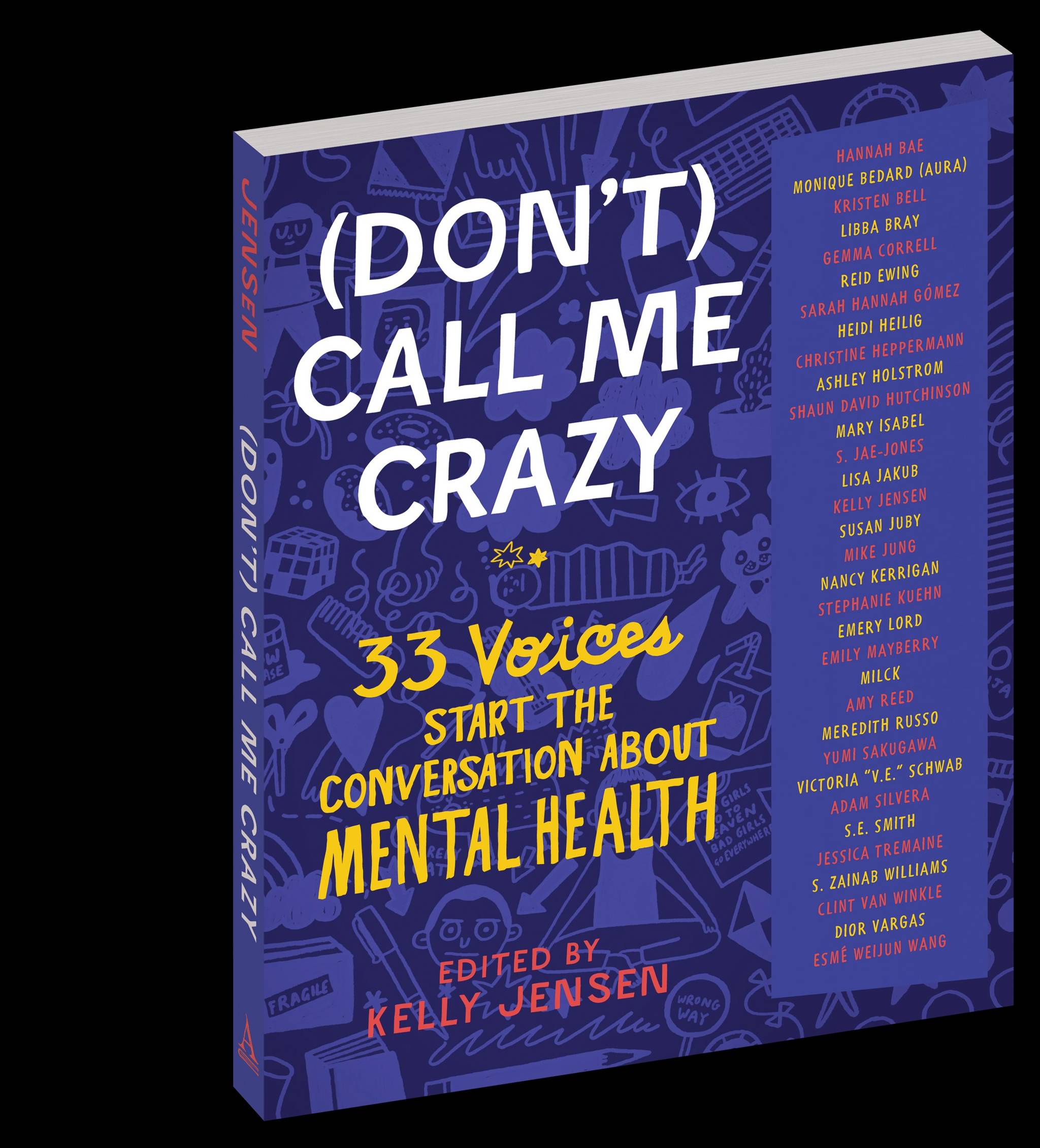Ouch, you twisted your shoulder and it hurts.
That’ll last awhile, but you’ll be okay. Might need a sling, maybe, but it won’t cramp your style; your friends will help. That’s what people do when someone’s hurt and they see that’s the case — but what about the illnesses they can’t see? In “(Don’t) Call Me Crazy,” an anthology edited by Kelly Jensen, you’ll read about diseases that often stay invisible.
Hang around older folks for more than a minute, and you might hear them mention their arthritis, bad back, bad knees, and other aches and pains. They do it openly because we have no problem talking about physical hurts or disabilities. So why is it hard to talk about mental health?
It shouldn’t be. People deal with mental health issues all the time, and saying they’re “crazy” can mean different things. It can include an aversion to sounds or a way of looking at one’s body. It can be sadness or compulsion. Overall, though, the thing to remember is that even when it feels the messiest and most overwhelming, “crazy” does not define an individual. You can be a “Latina Feminist Mental Health Activist or a psychiatrist-in-training or someone who’s trying to deal with family issues, whatever, but the disease is not you.
Or maybe you don’t know even you have mental illness.
That happens. You go about living life, enjoying your quirks until someone says you’re “crazy,” and you go look it up. Surprise! Your quirk is suddenly in a book somewhere and you learn, to enormous relief (and maybe ill-placed embarrassment), that you’re not alone in this. And that’s the whole point: you’re not alone.
Whatever you’re feeling, there’s a chance that someone else has been through something similar. They’re not you, but they know your mania, your body dysmorphia, your OCD or PTSD or depression or anxiety or the isolation all these things might bring. They know and they’ve survived. They know “there’s always someone there to help…”
Baby steps. That’s the simple takeaway from “(Don’t) Call Me Crazy”: just two words that a teen will learn when facing mental illness.
It takes 33 “voices” to get there, and each one hammers across the point — some with humor, others with fear that leaps between a reader’s hands, still others that offer a facts-only account that will comfort readers who don’t want embellishment. The writers featured here also come from different backgrounds, including those of color and a trans woman, all of whom are the least-discussed in mental health discussions.
The biggest help, though, comes from the sense of community that this book offers in the form of been-there stories from survivors and those who are works in progress. Either overt or implied, the words “It’s okay, you’re not alone” are here, everywhere.
Though it’s meant for 12-to-20-year-olds who desperately need its compassion, this book is a good start to a long adult conversation. “(Don’t) Call Me Crazy” could also offer good insight for professionals, parents, and friends to help shoulder the pain.

